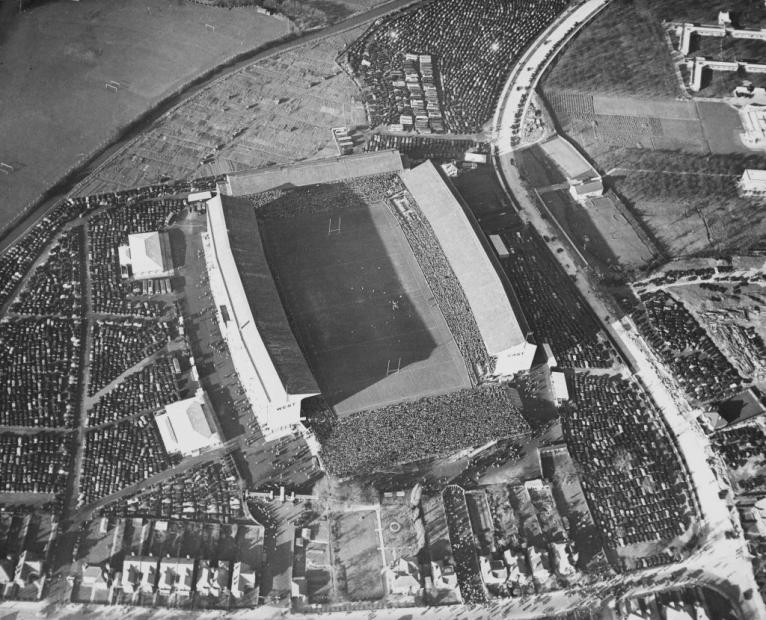Le XV de la Rose a failli quitter Twickenham

L’équipe d’Angleterre jouant ses matchs à domicile ailleurs qu’à Twickenham, cela vous semble incongru ? C’est pourtant bien ce qui a failli se passer, à en croire Bill Sweeney, le directeur général de la fédération anglaise, la RFU (Rugby football union).
Le dirigeant a confié récemment qu’il a été sérieusement envisagé de faire d’un nouveau site situé à Birmingham le nouveau temple du rugby anglais.
En mars 2023, la RFU a étudié les alternatives possibles à la rénovation du stade du sud-ouest de Londres récemment rebaptisé Allianz Stadium, et l’option d’acheter 50 % des parts de Wembley à la Football Association (la fédération anglais de football) a été discutée avant d’être écartée.
Twickenham va être rénové
Il ressort à présent qu’une délocalisation dans le centre de l’Angleterre a également été examinée, avant que de décider de rénover le stade mythique du rugby anglais. Un choix dicté notamment pour des raisons commerciales. « Nous avons étudié plusieurs options, dont la fusion avec Wembley, qui a fait l’objet d’une conversation », a déclaré Sweeney à l’agence de presse AP.
« Il a aussi été question d’un déménagement ailleurs, sur un nouveau site qui aurait pu offrir un meilleur accès à l’ensemble du pays. Il se situait dans la région de Birmingham et nous avons rencontré des gens qui avaient très envie de travailler avec nous. En fin de compte, toutes les données ont conduit à rester à Twickenham et à réaménager le stade.
« C’était en partie lié au marché des hospitalités (l’accueil des invités et partenaires au stade, ndlr) à Londres pour des raisons commerciales. De plus, il y avait l’aspect traditionnel, qui ne peut pas être négligé : Twickenham, c’est la maison du rugby anglais. »

La modernisation du stade commencera au plus tôt en 2027, pour un investissement global de 300 millions de livres sterling (355 millions d’euros). Cette solution a été préférée à une rénovation complète chiffrée à 663 millions de livres sterling (785 millions d’euros), un coût prohibitif.
L’amélioration des moyens de transport pour se rendre au stade et la diversification des utilisations de celui-ci figurent en bonne place à l’ordre du jour.
Les événements non sportifs, élément important de la réflexion
« On multiplie les réunions. Il est très important de faire preuve de souplesse avec les décideurs locaux en matière d’organisation d’événements », poursuit le DG de la RFU.
« Les événements non sportifs organisés dans les stades de Wembley et Tottenham par exemple constituent également un élément important de notre réflexion future.
« Nous ne pouvons pas reconstruire l’A316 (la route qui va notamment de Londres à Twickenham, ndlr) ni déplacer Londres ou les autoroutes. Mais nous voulons faire en sorte qu’il y ait deux voies d’accès à Twickenham – la gare de Twickenham et Hounslow (la ville située entre l’aéroport d’Heathrow et le stade). Des travaux sont également en cours pour améliorer l’infrastructure et l’accès à la partie nord du stade ».





























